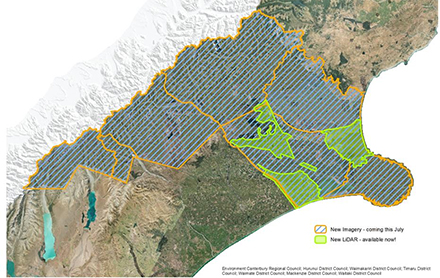
The Food and Agriculture Organisation of the United Nations (FAO) launched a new US$7.1 million project supported by the Global Environment Facility (GEF) to make forest data more accessible, transparent and available, and, in particular, help developing countries to meet the Paris Climate Agreement’s enhanced transparency requirements. Source: Timberbiz
Efficient monitoring of and reporting on forests and land-use change is essential for tracking progress towards the Sustainable Development Goals (SDGs) and as countries adopt climate change-mitigation and adaptation measures.
The project is co-funded by GEF (US$1.9 million) and FAO (US$5.2 million). It is one of only four global projects approved under the GEF’s Capacity Building Initiative for Transparency (CBIT) – a new trust fund aimed at supporting countries’ implementation of the Paris Agreement.
“Many developing countries lack the capacity to generate reliable forest data to report on their climate achievements. This project will provide an essential platform for more transparent forest-related data, helping countries to compile, analyze and disseminate better data in line with the Paris Agreement’s requirements,” said Hiroto Mitsugi, FAO Assistant Director-General, Forestry Department.
The project will directly benefit 26 targeted countries across Asia, Africa and Latin America and more broadly some 185 countries and territories that are part of the global network of National Correspondents for the Global Forest Resources Assessment.
The project will be implemented over two years by FAO’s Global Forest Resources Assessment and National Forest Monitoring teams, which already support 70 countries in their forest-monitoring to ensure more sustainable forest management and better reporting.
The project will focus on:
- Upgrading FAO’s Global Forest Resources Assessment (FRA 2020) reporting platform. Launched in March 2018, the platform has been used for the collection of data on the status and trends of the world’s forest resources. The upgrade will allow for more transparent reporting and easier access to the reported data.
- Developing an e-learning course on transparency in the forest sector for government forestry staff, but with the aim of making the course more broadly available – to universities, private sector and intergovernmental organizations.
- Organizing sub-regional and national workshops across Asia, Africa and Latin America and the Caribbean to build countries’ and sub-regions’ capacities in forest management, and introduce innovative forestry tools such as SEPAL and Open Foris developed by FAO and partners.
- Identifying and sharing case studies and best practices on transparency in the forest sector.
- Developing a series of outreach and communication materials to raise awareness on the importance of data collection, analysis and dissemination for transparency in the forest sector.
The FAO teams will work closely with partners, including the global FRA National Correspondent network, the Global Forest Observations Initiative (GFOI), United Nations Framework Convention on Climate Change (UNFCCC) and the CBIT Global Coordination Platform.





